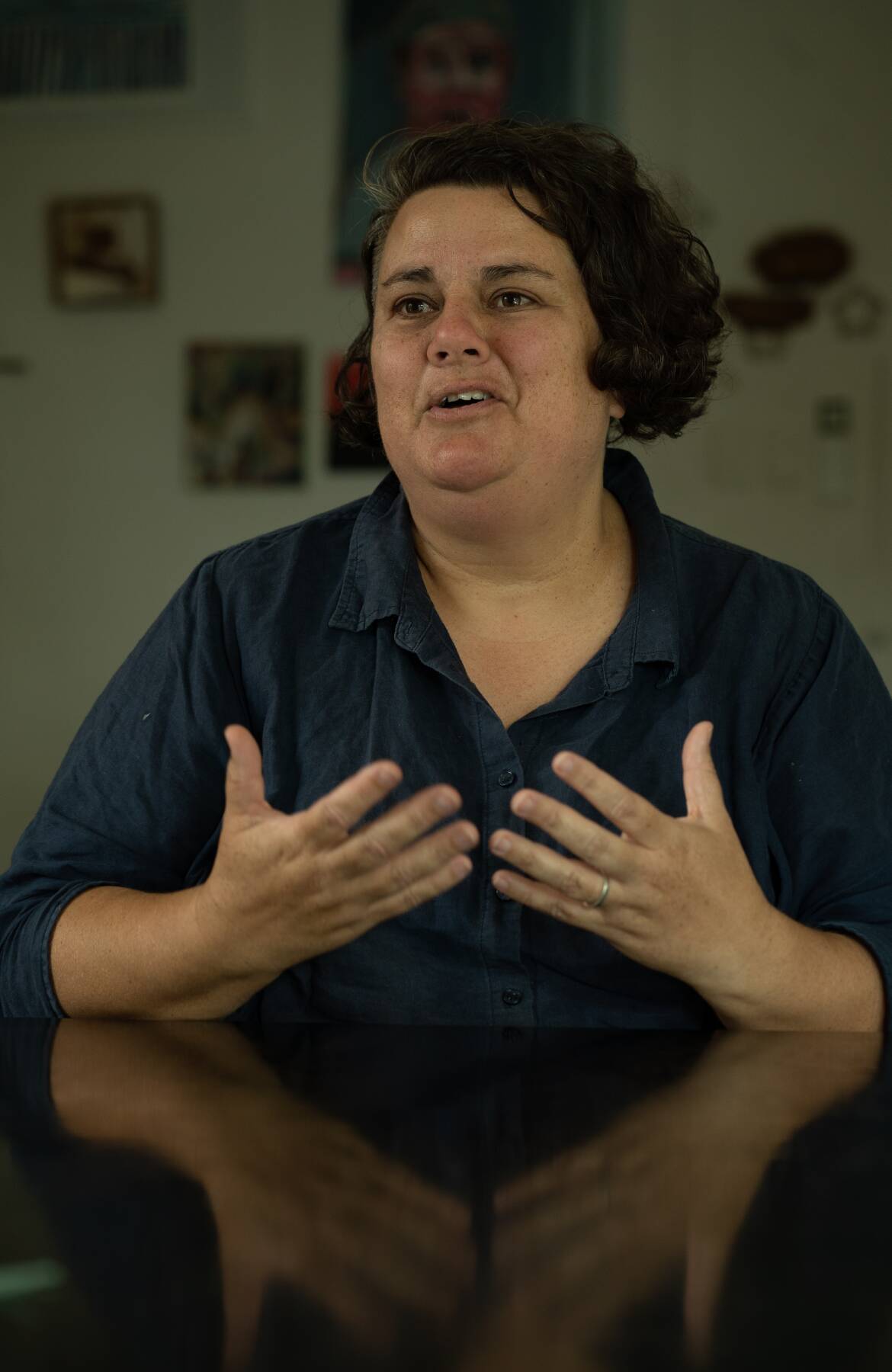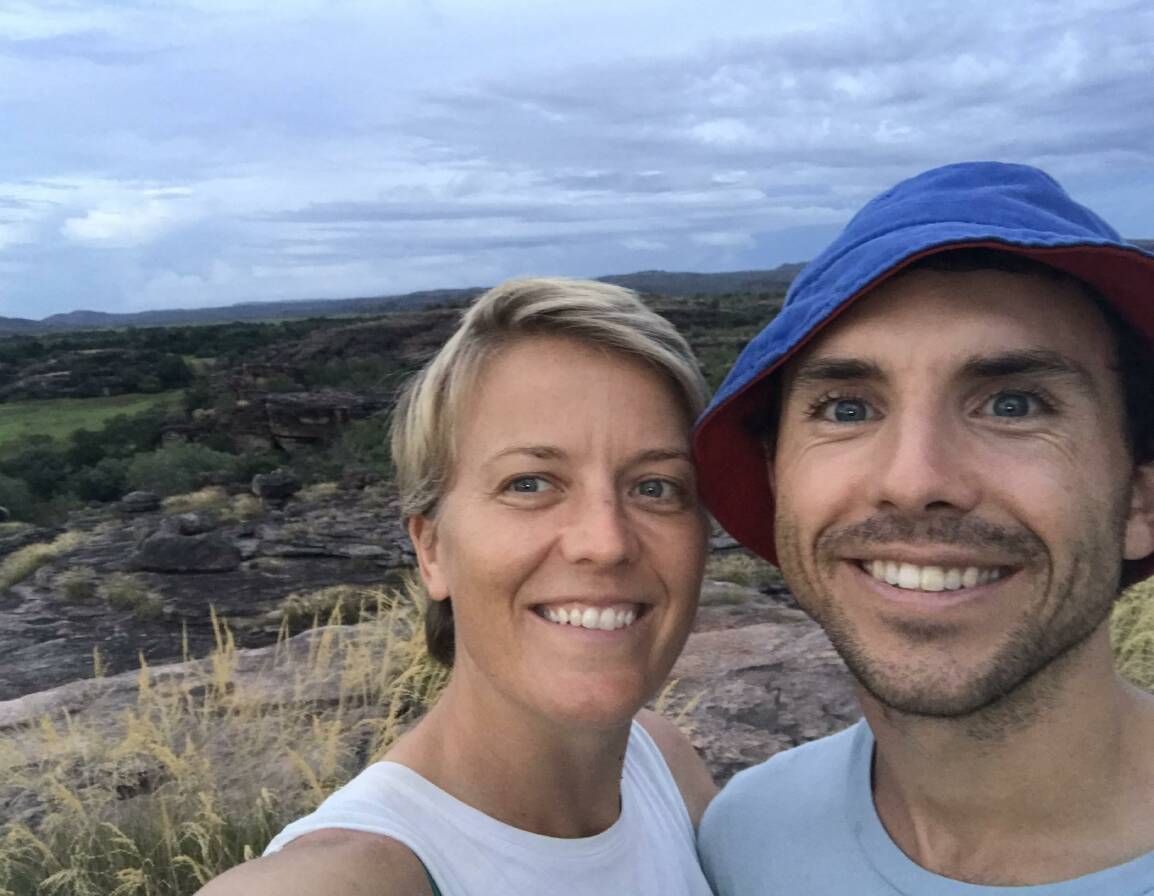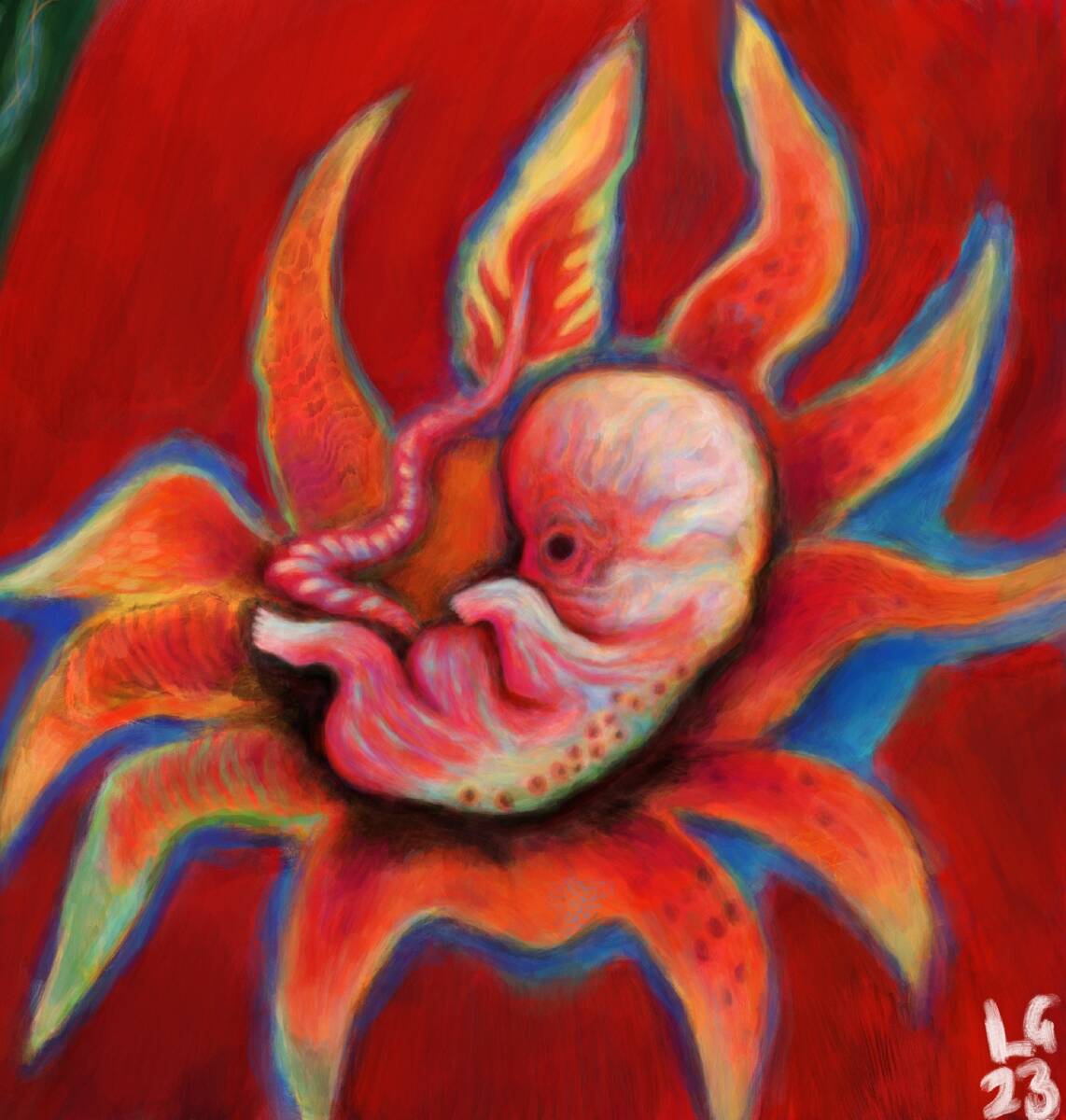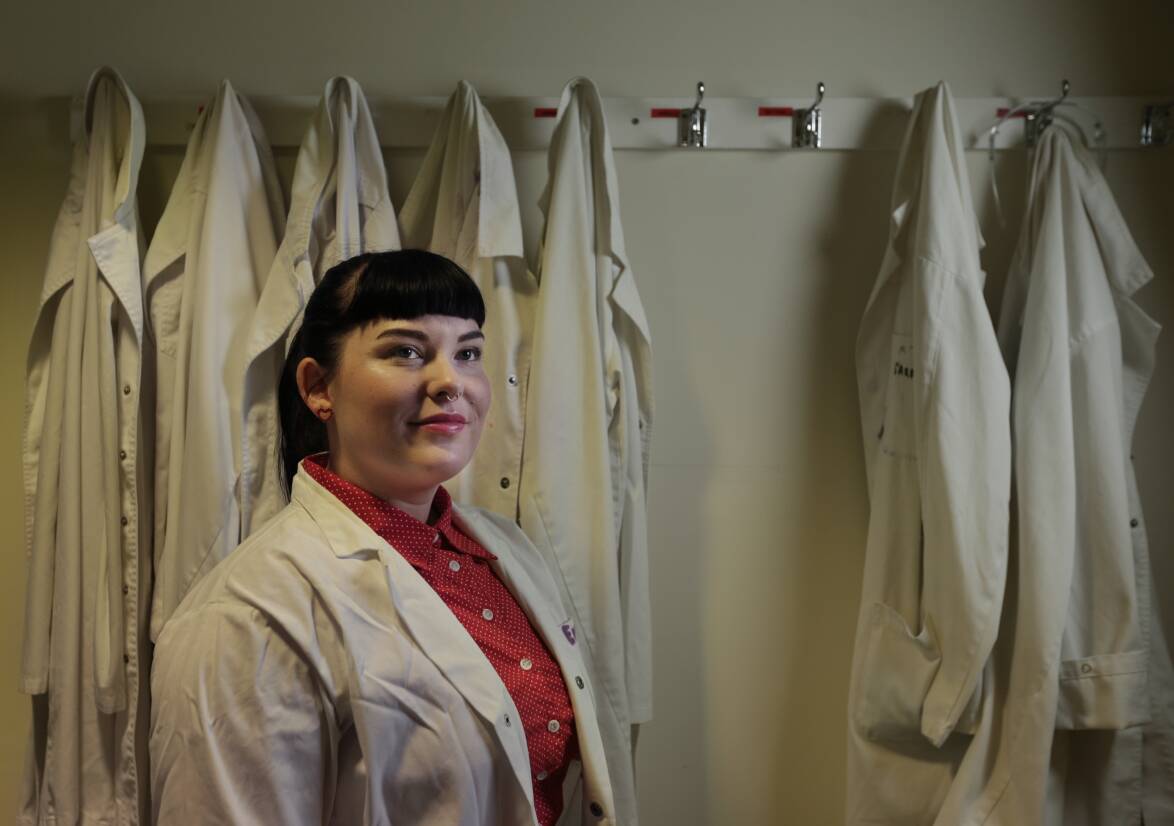
It's a unique grief, tied to a heartbeat and hope of what could have been.
Everyone knows somebody who has had a miscarriage. Not everybody talks about it, but chances are, you know someone who has suffered from pregnancy loss.
Charity support network Pink Elephants says one in four pregnancies end in loss.
University of Newcastle lecturer Tanmay Bagade says 15 per cent of confirmed pregnancies globally end in miscarriage.
The Newcastle Herald spoke with people in the community who have experienced pregnancy loss. It's a terrible loss, and everybody processes it differently.
Carmen Moyle is a doula and mother of three, who lives in Charlestown. She experienced pregnancy loss between her second and third child. She said the decision to speak about the experience was always up to the woman.
"We have that cultural expectation to wait to tell our pregnancy news at the 12-week mark, but when women and partners have a loss in that time, they can be quite isolated and alone," Moyle says.

"Sometimes I wonder if we normalised sharing it earlier, if that might change the experience of pregnancy loss. It is so hidden away. It's hard to say to someone after the fact, 'I've actually been pregnant and I've had a miscarriage'."
Wanting to be a Mum
Tighes Hill mother Bannaua Brown's single goal in life was to have kids. She's now had two "earth children" here in Newcastle, but sadly she lost two while she and her husband Scott lived in California.
"I don't know what sort of person I would be if I had not had Oscar and Angus before. Would I be a soccer mum in America? I wouldn't have had Rowan and then Tobias," Bannaua says.
She's had 18 years to process her grief, but she still has bad days.
An American doctor told her it would be hard for her to get pregnant and encouraged her to start trying. She and Scott were in their 20s. She went off the pill and quickly fell pregnant. The year was 2005. For the first 13 weeks things went well. At 20 weeks she woke up, bleeding. She drove herself to the hospital to learn her cervix had dilated five centimetres, and there was nothing they could do to stop it from opening. She was told "he won't be born alive or breathing".
Oscar was born that afternoon.
The medical term for what she had was an incompetent cervix, and what happened with Oscar was called a late term miscarriage - 20 weeks and five days.
The couple tried for pregnancy and conceived again in 2006, and the doctors monitored her every week. On the 24th week her cervix went from four centimetres to half a centimetre. The baby was on the cusp of survival. She went to the hospital and doctors had her upside down hoping he would stay in. She was given a steroid shot, and still Angus came, feet first.
Because he was feet first, doctors didn't want to risk the birth canal and Bannaua had to have an emergency caesarian. Angus lived for four days in the Neonatal Intensive Care Unit (NICU). He had a "grade four brain bleed", and if he had lived it would have to be via a machine. Her husband Scott said they couldn't put a child through that, and they decided to take him off life support.
"After that, I decided, I can't live away from my family anymore. I was like 'I need to go back to Australia', and I think Scott realised that pretty quickly. We got back to Newcastle, we got a dog, who had since passed away," she says.
They got on an adoption list, but her husband wasn't ready to give up on the couple conceiving a child. She agreed to try one more time.
That's how she finally had both her "earth babies, Tobias and Rowan.
Before she moved, they scattered Angus and Oscar's ashes in the Pacific Ocean. Now, every year on their birthdays, the whole family puts their feet in the water.
Pregnancy loss in isolation
David Richards is a new Newcastle dad. Previously, he and his partner, Aimee O'Connor, lived in a remote community, teaching in the Northern Territory. Because it happened during the pandemic, their pregnancy loss was particularly isolating and traumatic. David waited in the car outside the hospital while Aimee was told that she'd miscarried. She had to let him know via text.

Aimee experienced a missed miscarriage, she had unknowingly lost the fetus. The following weeks of recovery were harder than either of them expected. Aimee went back to work too early and ended up bleeding through her clothes.
They waited the required six weeks and started trying again. Fortunately their next pregnancy was successful. Four months ago she gave birth to Ezra.
"If we'd had a second miscarriage it would have been a significant hurdle to put Aimee through that experience a third time," David says. "We spoke about that too when we started trying again, 'we need to be prepared.' I don't think I would have been up for trying a third time."
Carmen Moyle, a doula, always knew miscarriage might be part of the childbirth experience.
"Although it sounds really macabre, the more kids I have the more it increases the chance that I might have one," she says.
She had one at the same age as her mother did, also between her second and third child.
"I knew of aunties and my mum had a loss. I knew it was something that could happen to me. That doesn't take away the fact that it's really hard. Sometimes there's a sense of 'I should just get over it'. You know that it's common, but at the same time you need to grieve," she says.
Change of Plans
Liana Goninon, 28, is an artist living in Mayfield. Earlier this year, she and her partner experienced a surprise pregnancy.
"We have so much love between us; it was a precious gift," she says.
She drew a baby unconsciously, before she realised she was pregnant. All her senses were heightened.
"When I found out I was five weeks and three days. And then when I told my partner he was really supportive and excited. We were ready to change our lives, for that to unfurl," Liana says.

A new trajectory was set. The two began looking at moving in together. Then, when she was six weeks and a few days, she began to bleed. She looked it up and realised it was probably implantation bleeding. It was very light. She tried not to worry, but it continued for a few days.
"I hadn't even had my first doctor's appointment yet, and it was literally the day before I was supposed to go to that. I started bleeding quite heavily, just bleeding so much. I ended up panicking," she says.
She was at a support work shift taking her client to salsa class, when the bleeding became too much. She had to end the shift early and organise transportation for her client. Liana drove home and called her partner who took her to the Mater hospital.
"They were being really supportive and brought me a warm blanket. I ended up passing the bit of fetal matter that had the embryo in it. I don't know if it's called that in that stage. They were so sweet at the Mater. You don't have to experience it in the waiting room, they had a spare space," she says.
The hospital gave Liana and her partner the remains in a little box. They buried it in the garden near the turmeric. She learnt she had to birth all the tissue, which she did over the next few days while her partner looked after her. It was a challenging time.
"It felt important to go through the process. It was heaps of dense tissue," she says. "The time frame was almost seven weeks; it went from being so high to so low."
Liana shared photos from her pregnancy loss on Instagram. She wanted to be transparent about something that often came with secrecy and taboo. She struggled finding guidance.
"I found art an amazing way of processing the emotion," she says. "You have to honour and be present with your grief, you can't suppress it."

Communicating Loss
Some people reached out and told Liana that they had gone through it themselves, and they didn't have the courage to speak.
The night David and Aimee found out they were staying at a hotel in Katherine. He called his parents. A few weeks later, he opened up to some mates in Newcastle and one person in the community. The more the time elapsed the more he felt open to talking with people; it felt important to let people know. After they told others, so many close family and friends revealed they'd experienced the same. He was sad that people waited to share.
"If that never happened to us there would be people I never knew. And some were later term pregnancies, so I can only imagine it was more difficult, because you start imagining the rest of your life with your child," he says.
David wouldn't describe himself as your typical Aussie bloke. He thinks that the way Australian society discusses miscarriage and pregnancy loss is a bit old school.
"It helps to talk about it, to normalise. Where we lived we had limited support around us. I do feel like from a regional perspective, there's probably more focus on what's the women going through, than the man. The physical trauma isn't there for the male" he says.
The first pregnancy loss impacted their second pregnancy because the two were incredibly anxious at every appointment. They felt they could never get overly confident.
"You really appreciate how lucky you are to have a baby," he says.

Hunter Medical Research Institute fertility researcher Dr Emmalee Ford agrees.
"No one talks about it. It's so incredibly common," she says of miscarriage. "It's almost more common than having a baby, you have a chance getting pregnant. That's always fascinated me about reproduction, it seems so unlikely that babies ever get born, and there's so many things that can go wrong."
Grief is not linear
Unfortunately for Bannaua, the trauma she'd experienced came back to haunt her.
She made it to 38 weeks with Rowan. He was a wonderful blessing, but in a week's time she had developed postpartum psychosis.
"I remember saying to everyone, 'why didn't you tell me how hard it is?'"
She hadn't processed her "10 tonnes of trauma" from her previous loss.
Brown ended up in the mental health ward of a private hospital in Newcastle for 12 days, pumping milk for Rowan, who Scott looked after.
Tobias came in 2011 at 30 weeks, this time due to a partial placenta abruption. (She jokes she just wasn't meant to have babies.) She managed to make it to 31 weeks but he spent five weeks in the NICU. They both needed blood transfusions and afterwards she had a total hysterectomy. The depression struck again. She went off her antidepressants too quickly and ended up with obsessive-compulsive disorder (OCD) of thought, feeling she wanted to kill him or herself. She had suicidal ideation.
"In my mind it was a cry for help," she says. "I was so strong and good after Rowan, I thought I couldn't do it again."
She spent two weeks in hospital. They stablilised her medication, and she was able to go home. More than a decade has passed since that happened. She reflects on the experience and how before it happened, miscarriage never even crossed her mind.
"Now with TikTok, there's so much content on there for everything. I think it's gotten better, maybe worse for people who are anxious. I feel like it's so much more spoken about," she says.
Medical Perspectives
Ford said chromosomal problems were one cause of miscarriage, directly related to fertility.
Ford explained that a woman had eggs inside her body for all her life, and they were the only cells that didn't replace themselves. For an egg to be fertilised, its chromosomes needed to separate, and chromosomes had trouble separating as they aged.
"To be able to fertilise an egg the chromosomes need to separate. The older an egg is, the harder it is to do that," she says.
Dr Bagade is an obstetrician and lecturer. Before he began his PhD in Australia, he taught medical education and global health all over the world. He worked in Papua New Guinea to establish a midwifery school and reduce maternal mortality rates and child mortality rates including still births.
He said miscarriages were the most common in the first trimester (three months), often because of genetic causes and IVF-related miscarriages. Sexually transmitted infections also made miscarriages more likely.
In the second trimester, miscarriages are more from anatomical causes, meaning the uterus cannot accommodate the baby. This can be from things like incompetent cervix, or anatomical abnormalities in the womb long before pregnancy. In the third trimester the loss of a baby becomes a stillbirth.
"The baby survival rate is really good in Australia. If they are born in the third trimester, Neonatal care unit, we can give the mother steroid so the mother can breathe easy. There are a lot of interventions," Tanmay says.
He said people's 20s was a good age to start thinking about family planning, and your late 20s was a good time to get pregnant.
"Age appropriate decision should be advocated," he says. "If someone doesn't want to have a child, there are millions of women who don't', it's okay. It's normal. We should not be stigmatising women who don't have children."
He believes family planning should be normalised. Women who don't get pregnant earlier in their life feel pressure later. He adds that Australia has a very good health care system with subsidised afterschool care.
"If a woman has a pregnancy earlier in her life, it doesn't mean she has to sacrifice her work, and the work place is so friendly now. They are accommodating women for flexible types of work. There are different things they can explore," he says.
Changing our language
For Carmen, the doula, one way to normalise miscarriage is to change the way we talk about it. She's not a fan of the word miscarriage because it sounds like a medical procedure, a loaded term that implies fault or wrongdoing in a woman's body.
She prefers the phrase "pregnancy loss," as there has been a loss and there's going to be grief.
She notes: "All of the language of birth really needs to change. A lot of the medical terminology - geriatric pregnancy, failure to progress, failed induction, incompetent cervix."
She urges everyone to step up and support women, partners and families going through pregnancy loss. It's a tender vulnerable time and people treat pregnancy loss so differently to the way they treat a woman after she's had a baby. Support can mean cooking and dropping her a meal, making her a cup of tea, and listening without judgment, running her a bath.
"Pregnancy loss is common and is part of fertility journey and childbirth experience. If you do experience it, you're not alone. Know you haven't done anything wrong," she says.
"Pregnancy loss is birth and you need to heal from that experience it. Allow yourself the space and time to grieve."
For help, call Lifeline 13 11 14

THE FACTS ABOUT MISCARRIAGE
Risk of miscarriage increases as a woman gets older, but it happens to younger women too. Often it's a silent loss. Some feel they can't share the news as no one even knew they were pregnant to begin with.
For some who experience pregnancy loss, seeing young families or hearing pregnancy announcements can be triggering. It can completely change the way couples experience future pregnancies.
Here are some facts supplied from Pink Elephants about miscarriage in Australia:
# In Australia, a miscarriage is the loss of a baby prior to 20 weeks gestation
# Every five minutes, someone experiences a miscarriage in Australia
# Miscarriage impacts 1 in 4 pregnancies in Australia
# Every year, 103,000 women in Australia will lose their baby to miscarriage
# Around 285 miscarriages occur every day
# The mental health event most likely to impact women in their lifetime
# 74% of women who have suffered a pregnancy loss felt they received inadequate support or information
Pink Elephants is an organisation that supports Australian women through early pregnancy loss. They are the only national support service specific to pregnancy loss prior to 20 weeks. Their mission is to ensure that no one walks the journey of early pregnancy loss alone, and their purpose is to normalise early pregnancy loss worldwide through evidence, empathy and connection.
October is Pregnancy and Infant Loss Awareness Month. On October 14 Pink Elephants will host a fundraiser at Earp Distilling in Carrington.
Source: Pink Elephants
pinkelephants.org.au







